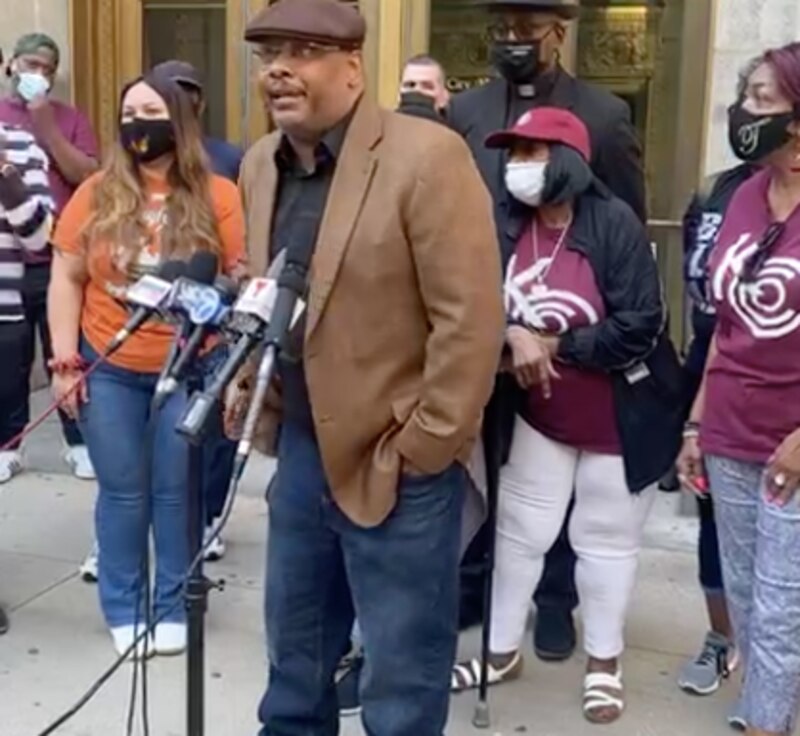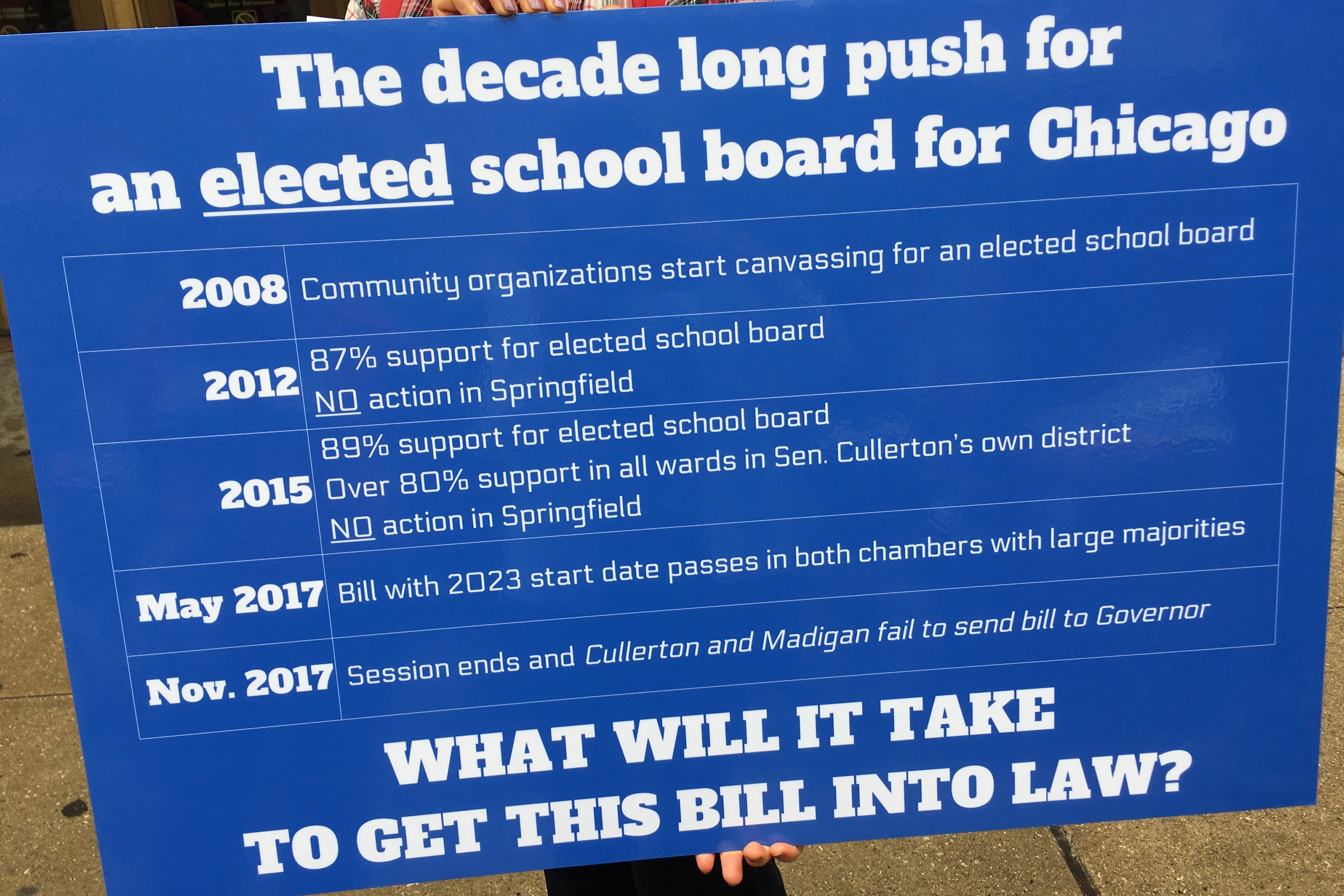Some longtime Chicago community leaders on Thursday morning protested a compromise plan to transition Chicago Public Schools to a 21-member elected school board by January 2027.
Seven community organizations that backed an elected school board bill oppose the hastily passed bill that the Senate approved in an overtime session. The bill requires action from the Illinois House, which has adjourned for now but could reconvene in the coming weeks.
The protesting groups agree with the bill’s goal, but object to the timing and to the phase-in of elected seats. The bill would establish elections beginning in fall of 2024 — but for only 10 of the 21 seats. Under the plan, the mayor would appoint the remainder of board members until the next round of elections two years later.
“I’m glad it’s happening, but six years down the road is not acceptable,” said Rod Wilson, executive director of the Bronzeville-based Lugenia Burns Hope Center, who spoke at a rally Thursday outside of City Hall. He pointed out that his daughter, a rising sixth grader at Murray Elementary in Hyde Park, will be finishing high school by the time the full elected school board is seated.
The Senate bill extends the board’s transition period compared with an earlier version of the bill passed by the state House, which would have completed the changeover in 2023. The City Hall protest was aimed at influencing the House vote.

“We would rather this bill die than choke on a hybrid school board,” said Jitu Brown, a longtime community organizer and the national director of the Journey for Justice Alliance, outside City Hall on Thursday.
The Senate bill “is a sham of a bill,” said Shannon Bennett, executive director of the Kenwood-Oakland Community Organization, another of the event sponsors. “It’s confusing to people. It makes people think that you did get an elected school board, and you didn’t—you got mayoral control. To me, that’s a win for Lori Lightfoot.”
Mayor Lightfoot also is pushing for additional consideration of the bill, but for different reasons: She advocates a smaller, hybrid board with a combination of elected and appointed members. Lightfoot proposes to establish an 11-person board, closer to the size of school boards in other major cities. Among the 10 largest school districts in the United States, the largest school board is New York City’s 13-person board, which is appointed.
“We have to get back to the table with a concerted effort to listen to each other,” Lightfoot said Wednesday at a press conference.
One party remains mostly pleased with the bill’s current form: The Chicago Teachers Union tweeted its thanks to Senate leaders Tuesday after the bill’s passage. “While not a perfect framework for legislation,” the union wrote, “the passage of HB2908 out of the Illinois Senate is the result of decades of work by families and communities in bringing an elected representative school board to the city of Chicago.”






